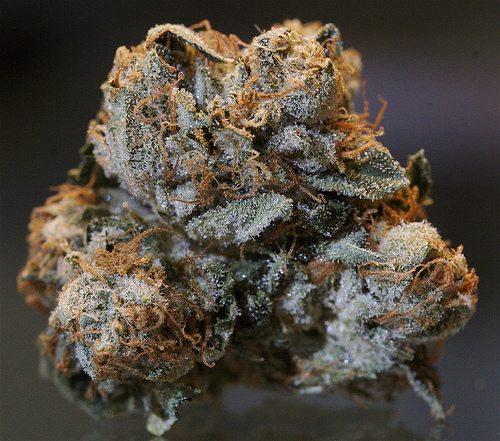 Our friends at Focus On The Family in Colorado Springs have put together some compelling information on marijuana and what legalization means for our communities. In case you have any doubts, the news is not good.
Our friends at Focus On The Family in Colorado Springs have put together some compelling information on marijuana and what legalization means for our communities. In case you have any doubts, the news is not good.
In one of their latest emails, Focus writes,
When Colorado legalized recreational marijuana in 2012, a Pandora’s Box of problems was opened.
Washington State, Oregon, Alaska and the District of Columbia have already followed Colorado’s lead. And, similar efforts to legalize the drug are picking up steam in California, Massachusetts, Nevada, Maine—and now the U.S. Senate.
Marijuana leads to a host of social problems and health-related risks, including increases in drug addition, mental illness, homelessness and crime, along with permanent damage to memory, lung function and brain development—especially in teens. Yet, even with this evidence, states are lining up to legalize this drug for recreational use.
On March 10, an historic and sweeping Senate bill was introduced to essentially end the federal ban on marijuana. The bipartisan CARERS Act—short for Compassionate Access, Research Expansion and Respect States—would remove any fear of federal prosecution. While patients and doctors are highlighted as the “compassionate” recipients of this legislation, the biggest benefactor would be the growing marijuana industry.
Meanwhile, another law—the Law of Unintended Consequences—seems to go unnoticed in what Colorado Gov. John Hickenlooper calls, “the greatest social experiment of the 21st century.”
Some politicians may be turning a collective “blind eye” to the negative consequences associated with legal marijuana; however, as Christians, we must not.
Is legalized marijuana coming to your state? What impact might it have on your children and your community?
In his article “The Marijuana Industry: Growing Like a Weed” published last year in Focus on the Family Citizen Magazine, Rod Thompson breaks down many of the problems associated with marijuana legalization–even for so-called “medical” use.
There has been a sharp increase in pot-related calls to poison control; seizures have quadrupled; two deaths so far are attributed to marijuana overdoses; neighboring states are experiencing a surge in pot use; and advertising through every available medium blankets the Centennial State, desensitizing people to the risks.
Perhaps most troubling, the drug is infiltrating Colorado schools, which now have lists of young people waiting to get help. Teens who use pot face nearly twice the risk of addiction as adult users, and juvenile usage increases the brain damage associated with the drug. ….
This April, Richard Kirk of Denver bought a package of Karma Kandy from one of the new pot shops, and within a few hours began raving about the world ending, pulled out gun and allegedly killed his wife. She was on the phone with 911 telling the dispatcher that he had eaten the pot and was hallucinating.
Levy Thamba, a 19-year-old college student on spring break, became delirious and agitated after eating a pot-laced cookie in March. He began shaking, screaming and throwing things before jumping off a four-story balcony to his death.
Thompson also notes marijuana has become a booming industry and is being bankrolled by donations from billionaires. He writes,
For example, George Soros has spent more than $80 million through a network of nonprofits to push for marijuana legalization over two decades. He sends money to the Drug Policy Alliance, the Marijuana Policy Project and the American Civil Liberties Union, which promote pot-legalization efforts.
Soros was joined by the late Peter Lewis. The former chairman of Progressive Insurance Co., an overt marijuana smoker, put in about $40 million to fund legalization campaigns, according to the National Organization for the Reform of Marijuana Laws (NORML)—a primary nonprofit advocate of legalization that has admitted to receiving money from illicit drug dealers. NORML originally pushed for legalizing all drugs, including cocaine and heroine.
In Colorado, 67 percent of the money spent to legalize marijuana came from those two men. It was roughly the same in Washington.
All of this simply underscores what we have been saying for over two years, now: Marijuana may be many things, but “harmless” simply is not one of them.
Click here to read Rod Thompson’s entire article “The Marijuana Industry: Growing Like a Weed.”
Photo Credit: “Cannabis Plant” by Cannabis Training University – Own work. Licensed under CC BY-SA 3.0 via Wikimedia Commons.




